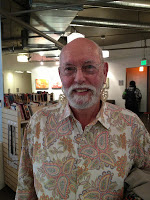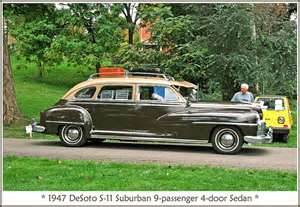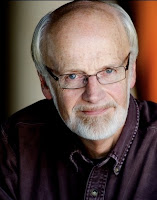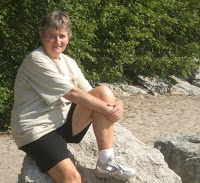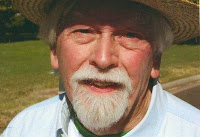Communications involve much more than words, a fact that to me seems especially true of communications made in the context of love, sex, and romance. In those contexts I feel uncertain what anyone is communicating to me. Why? Perhaps because I live too much in my own world. Perhaps I don’t hear anything except the words. Perhaps I just don’t get the emotional content of things said. Perhaps I didn’t get to practice love talk as a teen because I didn’t feel impelled toward girls and assumed boys were not interested. Perhaps I just cut off any expectation of falling in love so as to keep from getting hurt. Perhaps I married too young. I really cannot settle on any of these possibilities.
A psychiatrist challenged my over use of ‘perhaps’ and ‘maybe.’ He would say, “There you go again, waffling. Just tell me. Make up your mind.” That’s a problem. In my own defense I could have appealed to my scores on the Myers-Briggs inventory with its use of Jung’s conscious ego states (I was a strong perceiver and weak judge), but then maybe the psychiatrist wasn’t interested in Jung! Setting that aside, I will try to make a synthesis of these ideas—all my perhapses—and that synthesis begins with a story.
When I was in my mid-forties living in Albuquerque, Teresa, a pastoral counselor, attended the same interdenominational clergy support group I did even though she was not clergy. I liked that for I had always thought the clergy/lay distinction rather meaningless given my background. It seemed good to have present in the group the experience and perspective of someone not trained so thoroughly in theology and congregational life. Pastoral counseling is a category of psychotherapy alongside, for instance, family-systems counseling and other specialties. In addition to psychotherapeutic techniques used in other approaches, Pastoral counseling employs spiritual and religious themes as they seem appropriate to the counselor and counselee. (I say this to be as precise as possible.) Pastoral counselors offer pastors and parishes a referral resource for cases that go beyond the training of local parish pastors.
I liked Teresa. She liked me. When my high-school age daughter needed support in a particularly tough time, I asked Teresa if she’d be her counselor for about two months. Teresa told me it was not her practice to work with children of colleagues, but she trusted me and agreed to talk with my daughter. They met on two or three occasions and helped pave the way for Desma’s decisions to be successful. Teresa told me how impressed she was with my daughter.
Some months later Teresa opened up to me about her frustrations with work. We developed a caring and trusting relationship in which our communications always interlaced mutual respect and humor. She asked me about how I dealt with the dynamics of being an associate minister. I saw she needed help thinking through how to deal with some kind of power inequity in her own work. We talked informally over several weeks as she met whatever was her current crisis. Then she told me, “Phillip, you’re the best defended man I’ve ever known.”
I really didn’t know what she was saying to me but decided to take it as a compliment. After all she had said ‘best,’ and mom had taught me to say ‘thank you’ to compliments, even those I thought I didn’t earn or didn’t quite understand. For years I mulled over Teresa’s evaluation. I knew she was an astute observer of human behavior. I knew she took a woman-oriented point of view. I knew she followed current trends in psychoanalytic perspective. I knew she was kind. So I accepted her comment as I tried to understand its insight in order to better understand the dynamics it could reveal both in my personality and in my work relationships.
My musings eventually went far beyond work and landed me back at the point in my teen years when I must have been feeling the juices of sexual yearning churning in my system. I had watched my older sisters fall in love with guys and get hurt over it. I reasoned if you didn’t fall in love, you wouldn’t get hurt. I have no memory that my homosexual proclivity entered into my reasoning. I simply wasn’t interested in being hurt. I liked both boys and girls. I got hard-ons over both girls and boys. I liked both a lot. I decided that was okay, of course, even quite enjoyable. I dated girls. I sometimes had sex with a boy. I kept busy with music, studies, art, reading, various church and school groups, and my part-time work at the grocery store. I took care of the lawn at home. I was a nice kid who fit in well. I lived into my life. I defended myself from love’s potential pain.
When from my old age perspective I look most searchingly at my young self, I realize that probably something homosexual was at play, but it was deeply submerged. I liked the same boy who broke my sister’s heart, but I didn’t want the hurt she experienced. I wasn’t able to picture a social price for being gay because I couldn’t imagine two guys living together into adulthood. I pushed down what I didn’t even know. I feel fortunate my parents had not taught me guilt feelings or self-loathing. Those would have been destructive. As a teenager trying to figure out life and desire, I took my practical approach and set aside the potential of same-sex love. My defenses were sure and served me well. I didn’t reject my interest in other guys, just watched it. I enjoyed the feelings but didn’t pursue them into any kind of institutional form.
When I was twenty-one, I married a fine woman. When I was thirty, I fell in love with a nice man. I saw what was happening and was thrilled to my toes with the feelings. Eventually an affair began. It was controlled by distance and the uneven needs of my buddy. Some fifteen years later, our on and off occasional contact was not sufficient for me. I wanted to simplify my life, to find something that seemed more natural. Teresa’s comment which was made at around that time may have helped facilitate my changes. I opened myself to more feelings and to acting on them with people who lived nearby. Of course, it was a costly decision that ripped apart the stability of my life. I found thrills, but some twenty years later, even with all my new experiences in love, I still don’t catch onto the emotional content of what may be pick-up lines. I really still need folk to speak to me in simple, straightforward English. I need a hand to reach out and touch me before I am ready to shed my defenses. My settlement these days stands in great contrast to what I did as a fifteen year old, or a thirty-five year old, or even a forty-five year old.
I am so glad this sixty-five year old man had all these experiences. I continue to shed my inhibitions but still don’t want to hurt anyone else with the shedding. I recall when at fifty-five years I was so thrilled over meeting Rafael. I really was. I told a friend about him and wondered aloud at my surprise and at my elation that anyone would be interested in me. My friend Tony laughed and said, “Phillip, you just aren’t paying attention.”
Now I listen more carefully but still am not sure what I am hearing. Does this mean my closet door could open even wider? Does it mean I could become even more gay? I’m listening for the deepest levels of communication in my effort to overcome my own residual defenses—you know that ‘best’ stuff in me—and in my effort I hope really to hear what others are trying to communicate to me.
Whew.
About the Author
Phillip Hoyle lives in Denver and spends his time writing, painting, giving massages, and socializing. His massage practice funds his other activities that keep him busy with groups of writers and artists, and folk with pains. Following thirty-two years in church work, he now focuses on creating beauty and ministering to the clients in his practice. He volunteers at The Center leading “Telling Your Story.”
Read more at Phillip’s blog: artandmorebyphilhoyle.blogspot.com

